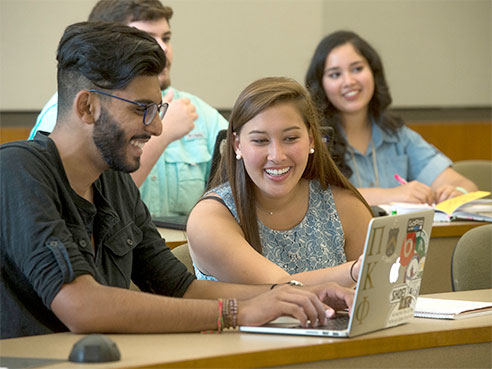 “Modern students and faculty members need access to digital connectivity that supports their maximum potential in and out of the classroom.”The University of Alabama at Birmingham is the first university in the state to launch internet speeds of 100 gigabits per second, boosting available bandwidth by 10 times the previous capability and up to 10,000 times many standard home internet speeds.
“Modern students and faculty members need access to digital connectivity that supports their maximum potential in and out of the classroom.”The University of Alabama at Birmingham is the first university in the state to launch internet speeds of 100 gigabits per second, boosting available bandwidth by 10 times the previous capability and up to 10,000 times many standard home internet speeds.
The $2.5 million investment is a valuable addition to the UAB experience for students, faculty, staff, guests and partners, providing the UAB community a competitive advantage in education, research, innovation and entrepreneurship, and patient care.
“UAB has world-class faculty, researchers and students intent on changing the world,” said Vice President for Information Technology and Chief Information Officer Curt Carver. “Hundred-gigabit speeds are not just about the flow of information and data into the university. This is ultimately about collaborating worldwide and the creation of novel ideas, new approaches and UAB’s delivering innovation. To change the world, you have to be deeply connected to it.”
Provost Linda Lucas says staying at the forefront of digital connectivity is vital in a university environment.
“Modern students and faculty members need access to digital connectivity that supports their maximum potential in and out of the classroom,” Lucas said. “The continued advancements outlined in IT’s strategic plan have established and will maintain the competitive advantage we offer in education and research.”
David Crossman, Ph.D., director of Bioinformatics in the UAB Heflin Center for Genomic Science Core Laboratories, says this upgrade is significant for researchers, clinicians and patients. Recently, it took UAB faculty more than a month to process and analyze a genomics package.
With UAB’s new capabilities, those same results are possible in a matter of days.
| "This is ultimately about collaborating worldwide and the creation of novel ideas, new approaches and UAB’s delivering innovation. To change the world, you have to be deeply connected to it.” |
“For a patient waiting to find out if he or she has a genetic disorder, three to four weeks is an eternity,” Crossman said. “Access to this kind of bandwidth and computing power will accelerate patient care as well as research that leads to new treatments and cures.”
Crossman compares former speeds used to transfer genomic packages to a drinking straw.
“The 100 meg speeds we used to have were like a straw,” he said. “Then we upgraded to 1 gig, which seemed more like a garden hose. Going to 10 gigs felt like we upgraded to a firehose. Now, with 100 gigs, we have a water main. We can deliver results exponentially faster.”
To lower costs and enhance network resiliency, UAB partners with the University of Alabama and University of Alabama at Huntsville to operate the University of Alabama System Regional Optical Network. Through this network, UAB lights up two 100 gbps fiber wavelengths — one from Atlanta and one from Nashville — providing important redundancy.
The concepts of partnership, stewardship and redundancy permeate this new network design, Carver says.
“If one line goes down, the UAB community won’t notice it because our system will switch seamlessly to the other,” he said. “The work being done by UAB students, faculty and hospital employees is too important to lose connectivity when a backhoe or car hits a line between here and Atlanta.”
These upgrades are the latest in a series of investments supporting the strategic plan for IT. In September, UAB unveiled the most advanced supercomputer in the state, significantly enhancing research capabilities across campus. The addition of 100 gbps of connectivity further differentiates UAB from other research institutions in the state, region and country.
UAB is also now the only Alabama university with an Akamai switch. Akamai is the standard for internet caching all over the world, with 135,000 servers deployed in 2,200 locations. The Akamai switch brings internet content locally to the UAB campus for much faster access by users all while preserving valuable internet capacity. To put the significance of UAB’s having an Akamai switch in perspective, there are only two Akamai switches in the state of Alabama.
Early in UAB’s strategic planning process, UAB President Ray L. Watts established investments in the IT infrastructure as a key priority.
“Dr. Carver and his team have taken a holistic approach to support major strategic priorities as well as each individual on campus,” Watts said. “And as we grow, we will leverage our infrastructure to benefit broader innovation in Birmingham so our institution and city continue to grow together.”
Read more about how investments in UAB’s IT infrastructure are benefiting research.